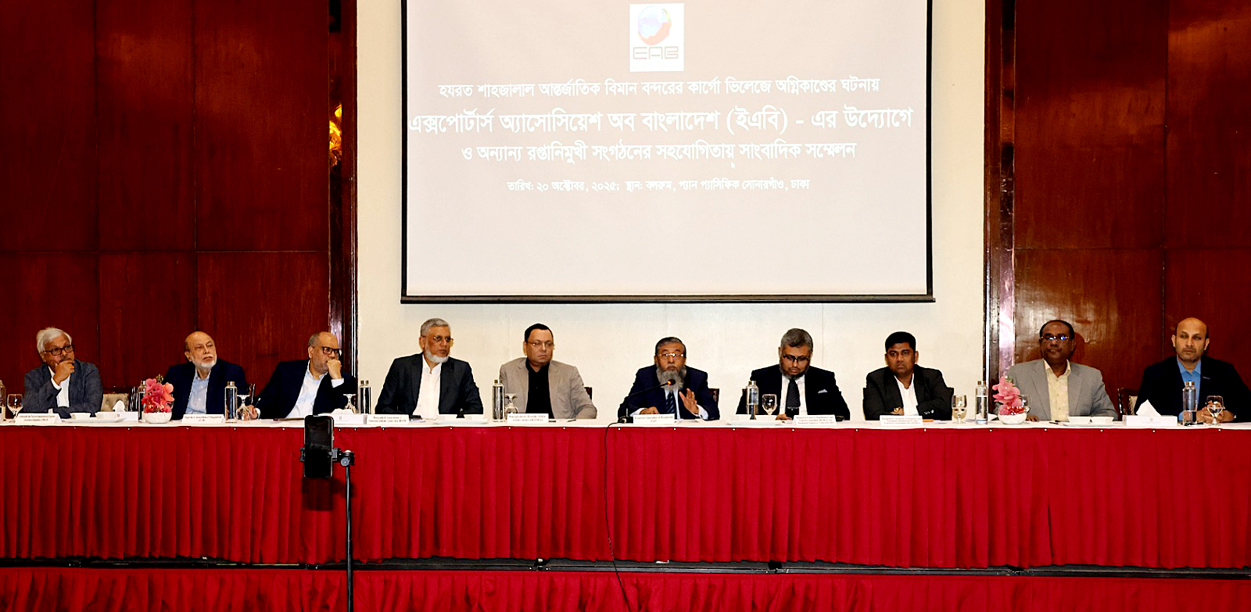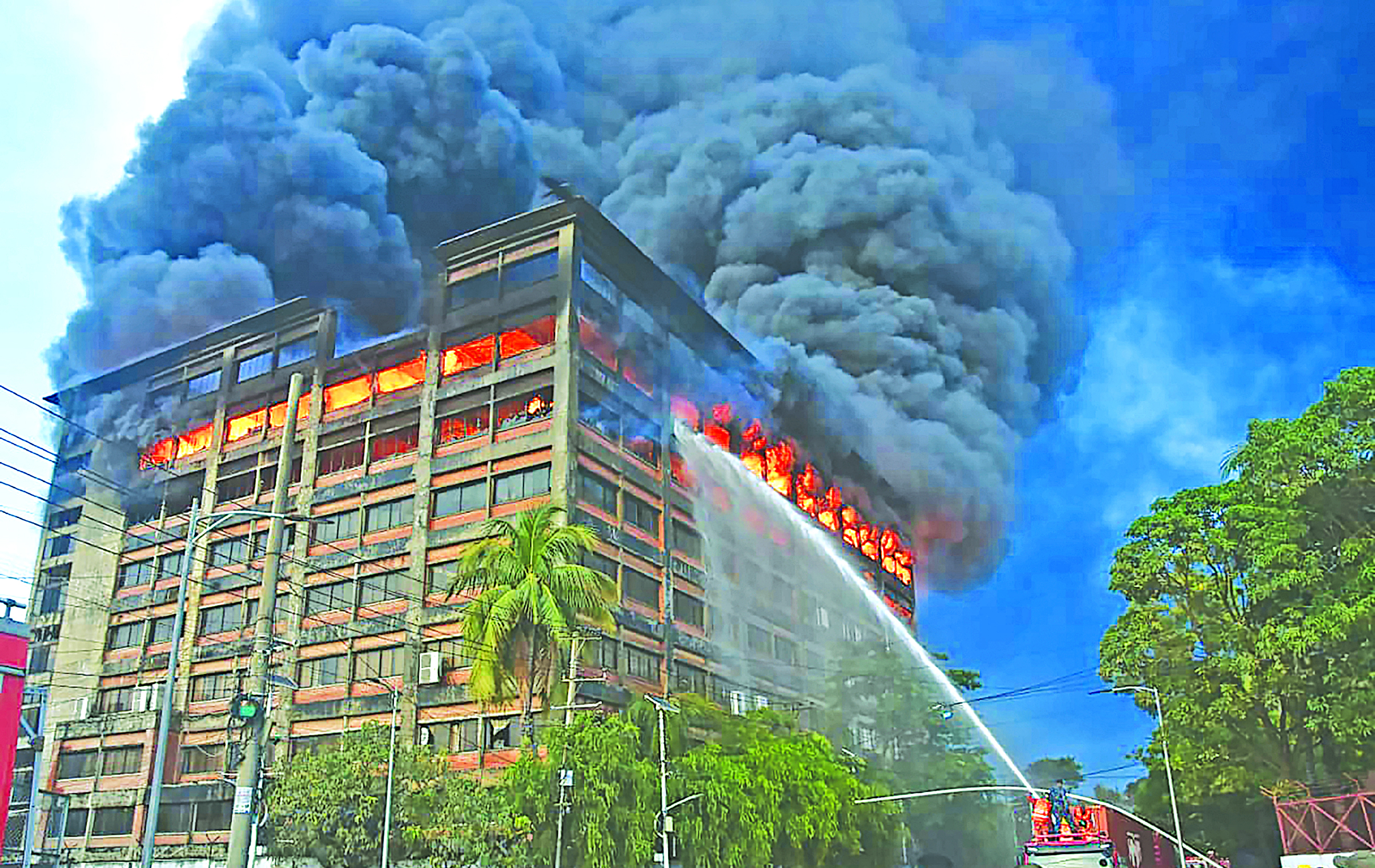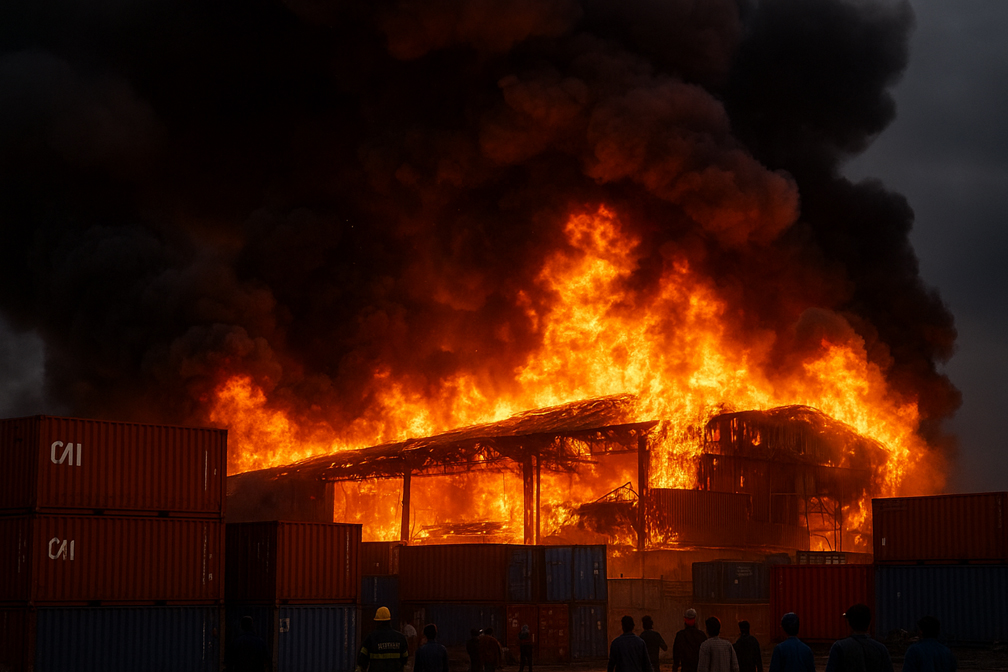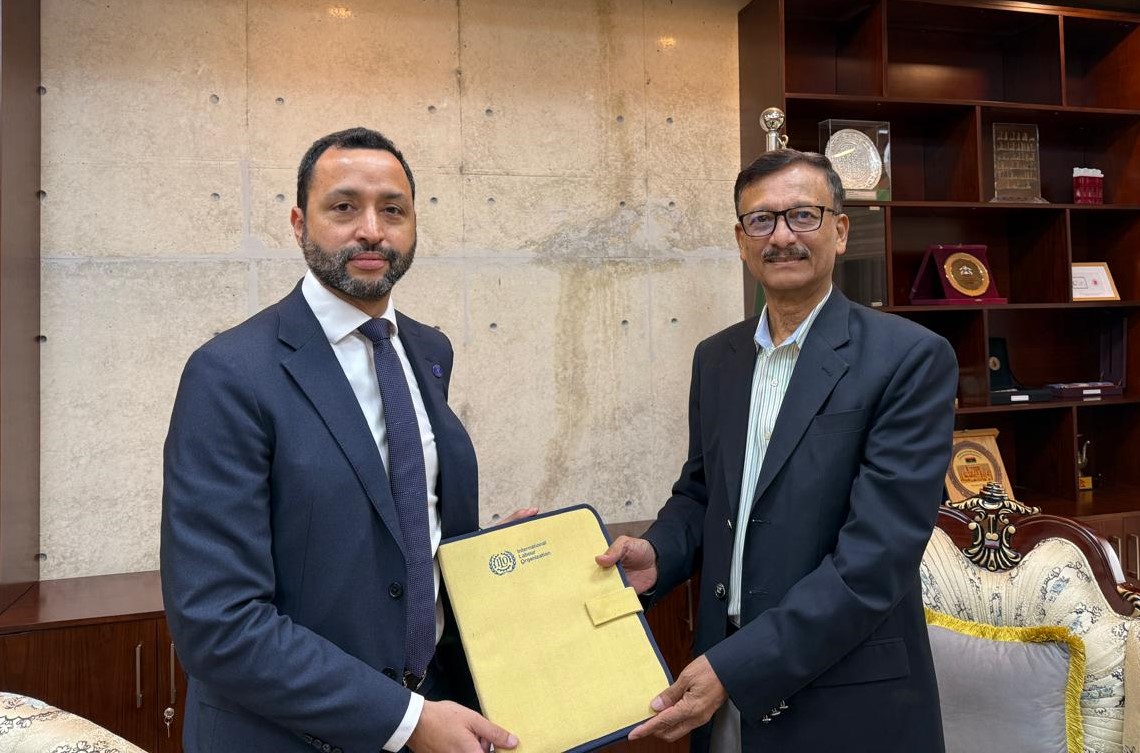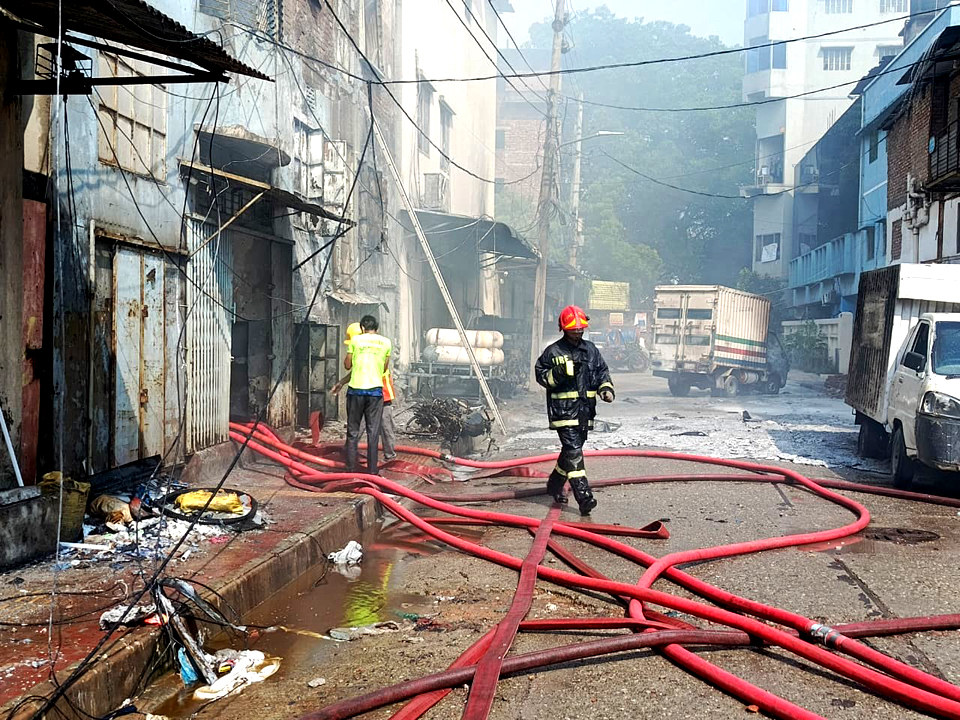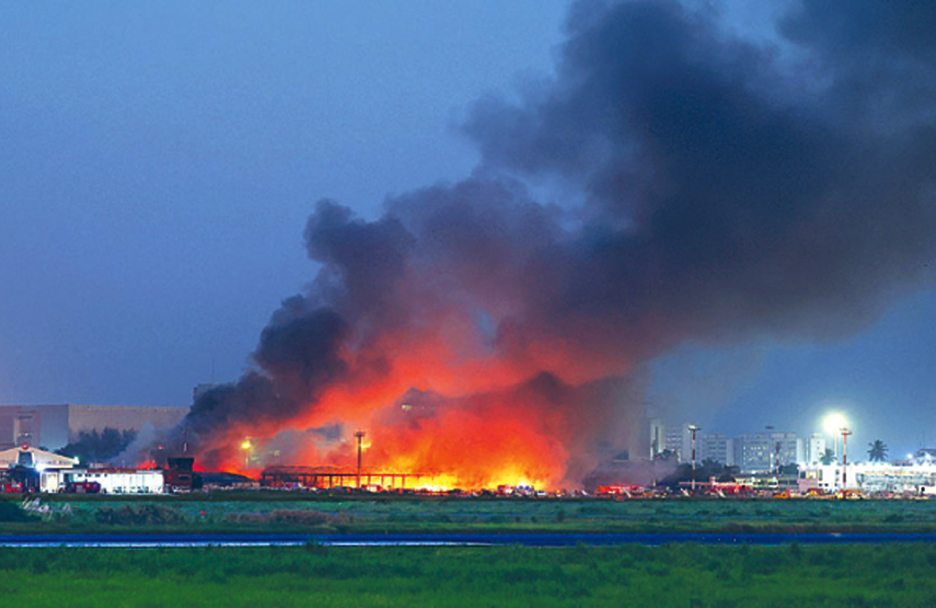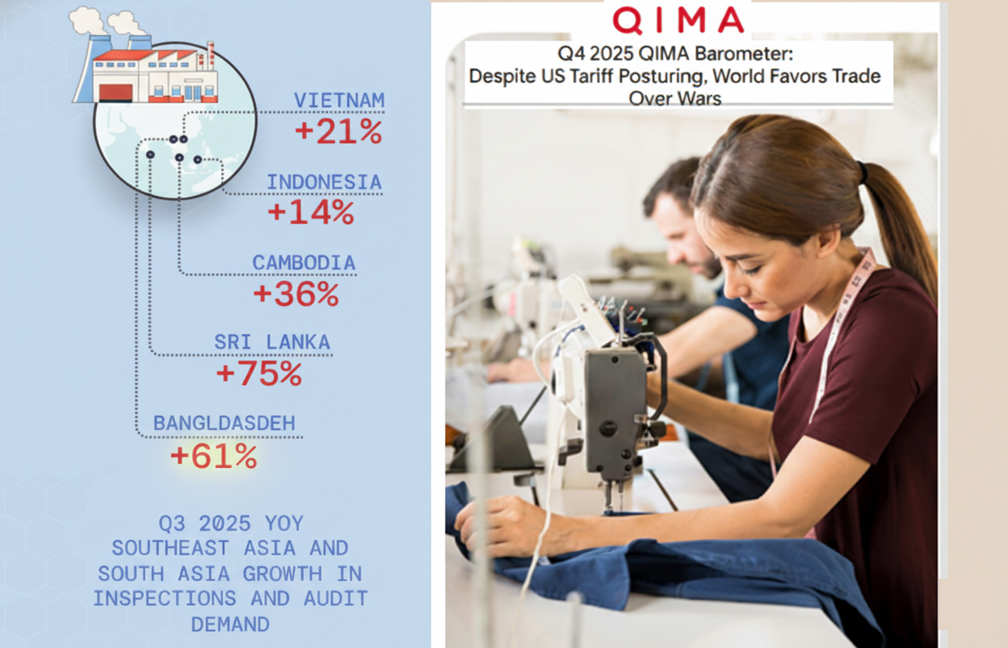The devastating fire at the Cargo Village of Hazrat Shahjalal International Airport in Dhaka has caused estimated losses of $1 billion (Tk 120 billion), the Exporters Association of Bangladesh (EAB) said on Monday.
The blaze, which raged through the Cargo Village of HSIA on Saturday, destroyed raw materials of around 32 pharmaceutical companies, valued at approximately Tk 2.0 billion, potentially disrupting the production and export of finished medicines worth between Tk 30 billion and Tk 50 billion over the next two to six months.
Industry leaders have called for stronger safety measures, immediate government support for affected SMEs, and a full investigation into the incident.
Leaders of the country’s export-oriented sectors disclosed these preliminary loss figures at a press conference held on Monday at Sonargaon Hotel in Dhaka.
They attributed the incident to the failure of relevant authorities to ensure an effective fire detection and protection system at the Cargo Village.
The leaders called for stronger safety measures at the HSIA import cargo zone and issued six demands, including immediate government support to compensate small and medium enterprises (SMEs) whose imported raw materials were destroyed.
Speaking at the EAB-organised conference, its president, Mohammad Hatem, expressed deep concern over the extent of the damage, noting that the fire had not only caused financial losses but also severely tarnished the country’s image.
‘It is still difficult to accurately determine the total losses for exporters caused by the blaze. But initially, we estimate the fire has caused losses worth Tk 120 billion or $1.0 billion,’ he said, calling for a transparent and thorough investigation.
Hatem explained that while direct losses involve the destruction of goods, the damage to raw materials will affect production and timely shipments of exportable goods, potentially undermining market confidence, global buyers’ trust, and compliance with international agreements.
He said that they were still awaiting detailed loss reports from their members and noted that successive fire incidents—at Ashulia, Mirpur, Chattogram EPZ, and Incepta Pharmaceuticals—had raised deep concerns among entrepreneurs.
Hatem warned that the Dhaka airport fire could create uncertainty among foreign buyers, potentially affecting future orders.
As president of the Bangladesh Knitwear Manufacturers and Exporters Association (BKMEA), he highlighted that the HSIA Cargo Village was one of the country’s most critical infrastructures, and the fire exposed serious gaps in its safety and security systems.
The EAB proposed forming a comprehensive investigation team, including government and business representatives, to determine the cause of the incident and implement measures to prevent similar occurrences in the future.
Bangladesh Association of Pharmaceutical Industries (BAPI) Secretary General Zakir Hossain said that 32 of 305 pharma companies reported raw material losses worth around Tk 2.0 billion in the recent fire.
Around 250 pharma companies are operational, and feedback from the remainder is still awaited.
Responding to queries, Zakir explained that producing a single medicine requires 10 to 53 components.
The loss of raw materials worth Tk 2.0 billion could disrupt production of medicines valued between Tk 30 billion and Tk 50 billion over the next two to three months, although there would be no immediate impact on the supply chain, he said.
Zakir expressed concern over the quality of raw materials relocated to Chattogram Airport, noting that temperature control is essential for preservation, which the airport currently cannot provide.
He criticised the Customs House for closing operations from 5 pm to 9 am daily and over weekends, calling for 24-hour operation even on a limited scale, with exporters willing to cover costs.
Citing damage to his own company, he said one narcotic product was destroyed and would take four to six months to replace after obtaining fresh permissions and clearance.
Md Nazmul Hassan, Senior Vice President of the Leathergoods and Footwear Manufacturers and Exporters Association of Bangladesh, reported that raw materials such as accessories and chemicals worth $1.0 million were destroyed, potentially resulting in billion-dollar losses.
Md Shahriar, president of the Bangladesh Garment Accessories and Packaging Manufacturers and Exporters Association (BGAPMEA), said initial losses in the accessories sector were around Tk 230 million.
Industry leaders urged the government to implement EAB’s six-point plan swiftly after a full investigation and damage assessment.
The demands include prompt settlement of insurance claims, creation of a government compensation fund for uninsured exporters, modernisation and expansion of the Cargo Village, a separate air-conditioned warehouse for pharmaceuticals, a chemical warehouse at a safe distance, and full automation of the cargo village warehouse.
Fazlee Shamim Ehsan, president of the Bangladesh Employers Federation, alongside representatives of other export-oriented sectors including frozen foods, plastics, and jewellery, also spoke at the conference.


